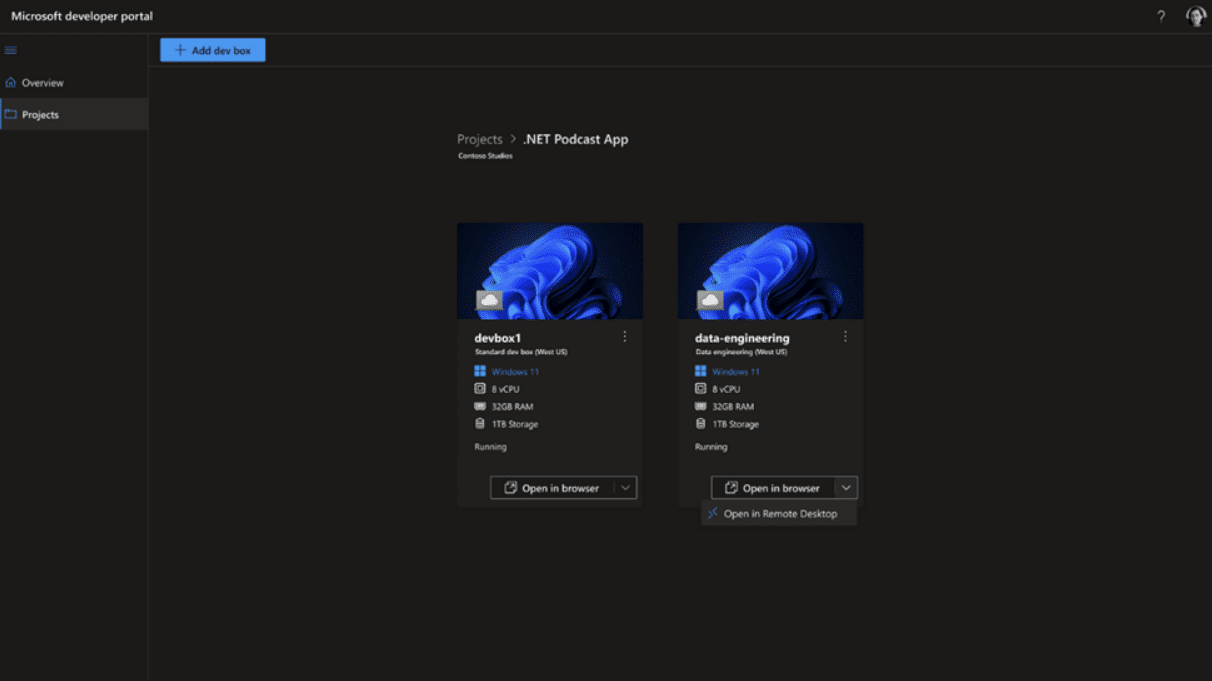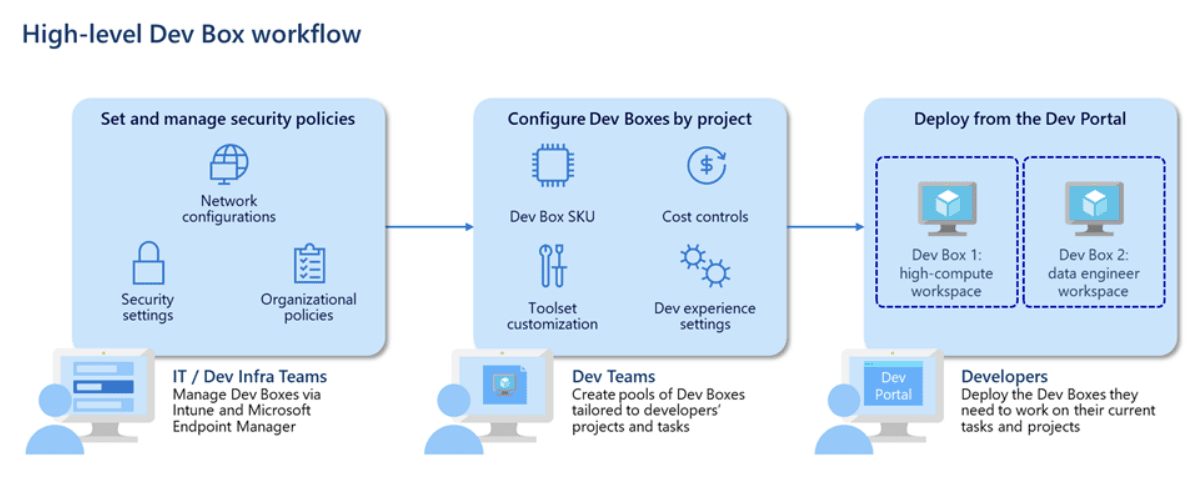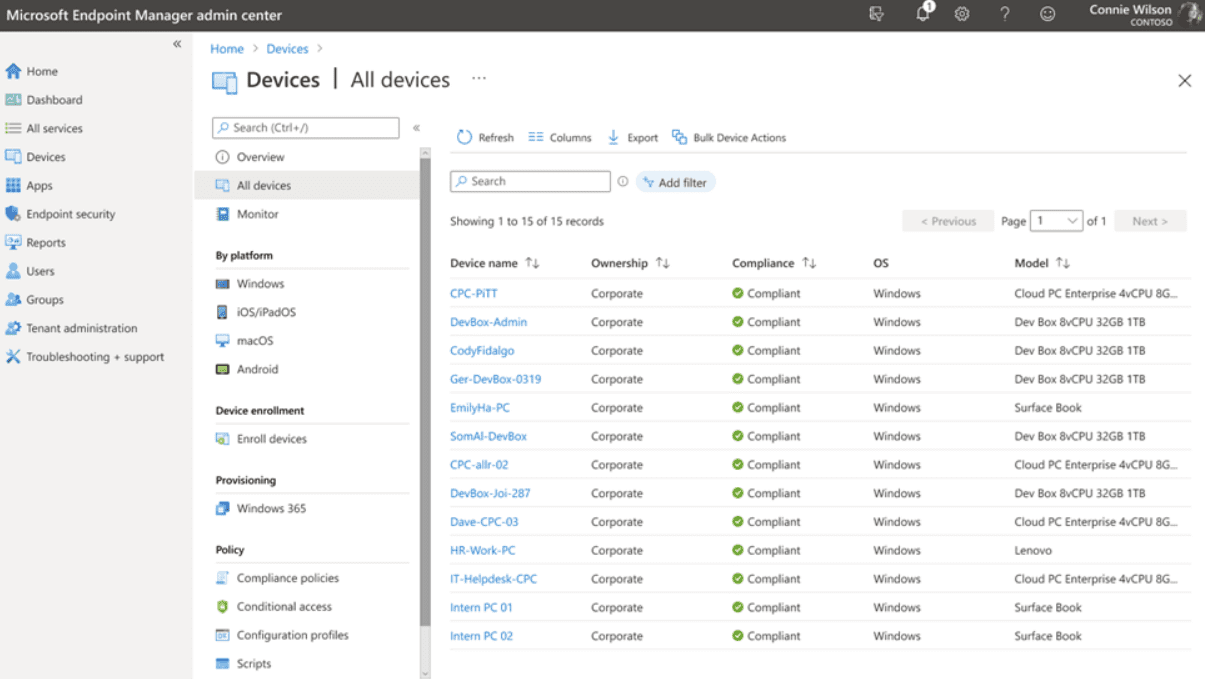Microsoft announced the Microsoft Dev Box back in May and recently made its preview available to the public. The Microsoft Dev Box is a cloud service that offers developers secure, ready-to-code developer workstations for hybrid teams of any size. It empowers them to focus on the code only they can write. Developers will be able to easily access the tools and resources they need without worrying about workstation configuration and maintenance.
“Maintaining a developer workstation that can build, run, and debug your application is critical to keeping up with the pace of modern development teams. As developers, we need the flexibility to set up and maintain our workstation, but even ‘small changes’ can unexpectedly poison our dev environments, interrupting our flow and costing hours to undo”, said Anthony Cangialosi, Principal Group PM at Microsoft.
With the Microsoft Dev Box, developers can create on-demand, high-performance, secure, ready-to-code, project-specific workstations in the cloud. It leverages Windows 365 to integrate Dev Boxes with Intune and Microsoft Endpoint Manager.
How Microsoft Dev Box empowers developers?
Focus on coding rather than the environment

- Microsoft Dev Box enables developers to focus on writing the code instead of trying to get a working environment for building and running the code. Dev boxes are a great way for developers to easily switch between different projects. The ready-to-code boxes are preconfigured with all the tools and settings developers need for their tasks.
- Any developer IDE, SDK, or tools that run on Windows are supported by Microsoft Dev Box. It is possible for developers to target any development workload that can be built from Windows. It also supports building cross-platform apps. Developers can securely access dev boxes from any device, whether it’s Windows, macOS, Android, iOS, or a web browser.
Create dev boxes as required by the teams

- Microsoft Dev Box empowers developer teams to create and maintain dev box images with all the tools and dependencies their developers would require for building and running their applications.
- Dev leads can instantly deploy the correct size dev box for specific roles in a team anywhere in the world. Dev box size could range from 4 vCPU / 16GB to 32 vCPU / 128GB SKUs to scale to any size application.
- Dev teams can have a smooth and responsive experience with high connection speeds by deploying dev boxes in the closest Azure region and connecting via the Azure Global Network.
- IT admins can allow access to sensitive source code and customer data for each project by using the Azure Active Directory groups.
- Role-based permissions and custom network configurations enable dev leads to give vendors access only to the resources they need to contribute to the project. This eliminates the need to ship hardware to short-term contractors and makes the development more secure.
Centralized governance and management

- As Microsoft Dev Box builds on Windows 365, IT administrators can easily manage dev boxes together with physical devices and Cloud PCs via Microsoft Intune and Microsoft Endpoint Manager.
- IT admins can set policies to make sure that users can only access devices that are allowed. They can also use quality updates to quickly update dev boxes and keep them safe from attacks.
- Endpoint Manager’s deep device analytics enables to audit the application’s health, device utilization, and other critical metrics. This gives developers the confidence to focus on their code as they are not exposed to any unnecessary risks.
- Automated schedules can start up your dev boxes in the morning and turn them off at night. This happens while they are not being used. As hibernation becomes available shortly, developers will be able to resume a stopped dev box and pick up from where they left off.
Click here to know more about Microsoft Dev Box and get started with the service. Find here how to deploy your own Dev Box from a pool.
Image credits: Microsoft
Read next: A global US$500 billion opportunity awaits Indian cloud services players








